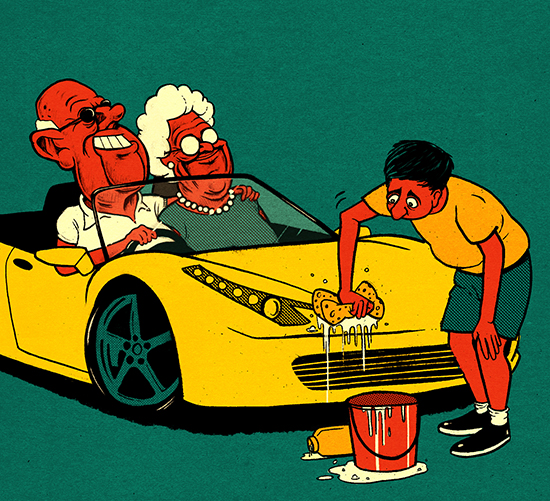In the same boat?
Editorial: As sales of adult incontinence pads in Japan have reportedly overtaken infant nappies, the effects of demographic change have implications beyond supermarkets’ toiletry shelves.
Economists are divided over how demographic change influences how much is bought or saved. The Bank for International Settlements, for example, says that a larger share of dependants in societies, both young and old, correlates with higher inflation, while the US Federal Reserve says a greater number of older people leads to low interest rates.
According to economic theory, working people save, while retirees decumulate savings. However, “the question is, do older people decumulate? That’s not necessarily the case. People are insecure about how long they will live, [or] whether healthcare costs will rise”, said Michela Coppola, senior economist at Allianz Asset Management.
In the UK, pension freedoms have added to this insecurity, with many unsure as to how to use their pots – often ending up not doing anything, she noted.
Knowing whether older people tend to save or spend could become more relevant not just because their numbers are growing relative to younger generations. Pensioner incomes have also gone up in recent years, and even overtaken those of non-pensioners if housing costs are factored in (for more on this read our feature).
Illustration by Ben Jennings
With the earnings of the young lagging behind those of previous generations – new research from the Resolution Foundation says millennial men will have earned £12,500 less than men of Gen X by the time they are 30 – it seems even more important that they are enrolled in a pension early on.
Equally vital is the need for sufficient contributions. But the government has said it is not planning to make any policy recommendations this year, with the advisory panel for the 2017 auto-enrolment review only gathering evidence (find out more).
The government’s cautious stance on raising contribution levels further, for fears that opt-outs might increase, is perhaps justified. But the question is what solution it will present if it finds this is indeed the case, yet contributions are too low to provide adequate pension income?
Compulsion is one option – but would government be bold enough to go down that route? It could take years before we find out.
Sandra Wolf is editor at Pensions Expert. You can follow her on Twitter @SandraCWK and the team @pensions_expert.


